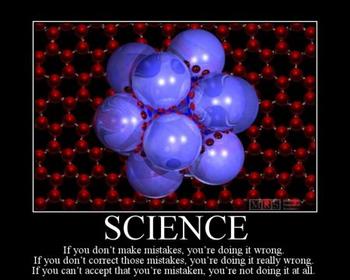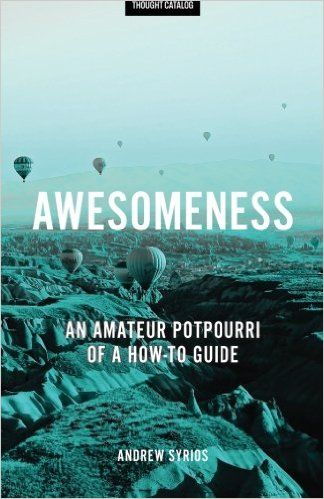|
One of the things that bugs me about the Left is this regurgitated mantra that liberals are "pro-science" and conservatives are "anti-science." Indeed, it appears that political ideology makes both liberals and conservatives "deny" science. And with liberals being more influential in research universities, the Left is, in my humble opinion, a much greater threat to science than the Right. Anyways, here's an article I wrote for SwiftEconomics a while back that discussing this mutual disdain for science. So Michael Shermer made a bit of a splash earlier this year when he wrote there was a “liberal war on science” in addition to—not instead of—a conservative war on science. As he says: The left’s war on science begins with the stats cited above: 41 percent of Democrats are young Earth creationists, and 19 percent doubt that Earth is getting warmer. These numbers do not exactly bolster the common belief that liberals are the people of the science book. In addition, consider “cognitive creationists”—whom I define as those who accept the theory of evolution for the human body but not the brain. As Harvard University psychologist Steven Pinker documents in his 2002 book The Blank Slate (Viking), belief in the mind as a tabula rasa shaped almost entirely by culture has been mostly the mantra of liberal intellectuals, who in the 1980s and 1990s led an all-out assault against evolutionary psychology via such Orwellian-named far-left groups as Science for the People, for proffering the now uncontroversial idea that human thought and behavior are at least partially the result of our evolutionary past. He continues: There is more, and recent, antiscience fare from far-left progressives, documented in the 2012 book Science Left Behind (PublicAffairs) by science journalists Alex B. Berezow and Hank Campbell, who note that “if it is true that conservatives have declared a war on science, then progressives have declared Armageddon.” On energy issues, for example, the authors contend that progressive liberals tend to be antinuclear because of the waste-disposal problem, anti–fossil fuels because of global warming, antihydroelectric because dams disrupt river ecosystems, and anti–wind power because of avian fatalities. The underlying current is “everything natural is good” and “everything unnatural is bad.” Arsenic, I should note, is natural. Chris Mooney, the author of The Republican War on Science, replied saying there is absolutely no liberal war on science to see here, by irrefutable points that “considerably fewer Democrats than Republicans get the science wrong” and liberal “anti-science doesn’t get mainstreamed” and “doesn’t shape public policy.” Well the liberals love Head Start and it’s blank-slatism despite it proving to be a failure over and over again, so maybe liberal scientific views, err, anti-scientific views do “shape public policy.” And what about the hubbub over fracking? Or the fact that Germany banned GMO corn? He makes no mention of these things of course. Anyways, he finally ends with the most-scientists-are-Democrats appeal to authority fallacy (and of course he’s citing a poll of university and government scientists, whose income derives from the government… no conflict of interest there). Indeed, does the fact that engineers are more likely to be Republicans make Democrats anti-engineering? Ronald Bailey of Reason Magazine decided to put this whole issue to the test and went through a handful of major scientific matters to see who is more pro, err, anti-science. He compared poll results among Republicans and Democrats and compared them to what can best be gathered as the scientific consensus. The results were as follows: - Climate Change: It’s happening and mostly human caused, see here: Advantage Democrats In the end, the Republicans actually win 6 to 4 with 1 draw! And furthermore, Bailey doesn’t even go into the blank slate, cognitive denial (see here) or the anti-animal research movement (see here) or the ridiculous claim that men and women are effectively the same (see here). All of those would also favor Republicans. Of course, gayness cannot be cured. so score one for the Democrats (see here). Now I would guess people who believe in Astrology are more likely to be liberal too, but then again, those who believe in miracles are probably more likely to be Republican. Indeed, is believing God speaks to you any more ridiculous than believing it would be best to forego civilization and go back to our hunter-gathering roots (a la Jared Diamond) only without the hunting since we should all be vegetarians of course? Now there are a few problems with all this score tallying. Does being wrong on sex education really equate to being wrong on evolution? Are those matters of equivalent value? Probably not. Furthermore, these are shades of grey. For example, one poll showed that while 65% Republicans hold either intelligent design or creationist views, 52% of Democrats did the same. Is that really a win for the Democrats? Furthermore, are these creationist view equivalent? Should believing that God exists and uses evolution (intelligent design) count as being an evolution denier? The other major problem is that this method assumes that the scientific consensus (or in some cases, just where science is leaning) is correct. I for one, am a bit skeptical not about whether humans contribute to global warming, but how much and what is the cost/benefit analysis of dealing with it. The only one I really hear talk about that is Bjorn Lomborg. I also have some doubts about GMO crops and am not a huge fan of gratuitous violence in video games. And I remember sitting through sex education classes with an almost unending desire to eye roll and face palm. Does that make me anti-science? Heterodox science is extremely important, as is a degree of humility. If we just went with the scientific consensus and called it good, we would still believe in blood letting, the Phlogiston theory of fire and phrenology. Indeed, the problem with the American public’s view of science isn’t really a right/left thing (they’re both anti-science), it’s an ideological problem. As Ronald Bailey’s title and subtitle make clear: “Why Do People Believe in Scientifically Untrue Things?” Well it’s obvious; “Because to do otherwise would be immoral.” Indeed, it’s as the political questions in the United States’ have moved toward questioning conservative beliefs (global warming, evolution) and thereby conservative faith in science fallen. As Gordan Gauchat notes: But only conservatives showed a change over time. At the beginning of the survey, in the 1970s, conservatives trusted science more than anyone, with about 48 percent evincing a great deal of trust. By 2010, the last year survey data was available, only 35 percent of conservatives said the same. Science is politically neutral (or at least it should be, I’m looking at you Chris Mooney”). And we have to be open to the possibility that what we believe ideologically and philosophically may be wrong on a scientific level. That’s what the scientific method is all about. Testing new theories and existing one’s ruthlessly without preconceived notions. And it is in lacking that, not the individual scientific issues mentioned above, that is the real problem the American people have with regards to science. But to prove this has more to do with than individual issues being addressed rather than the entire philosophy being espoused, one need only look across the pond (well both to be accurate). Gauchat again: Interestingly, public opinion on science in Europe and Japan skews differently than in the United States, Gauchat said. There, skepticism about the scientific community usually comes from the left. The reason may be that the issues on the scientific forefront in Europe (genetically modified food, nuclear power) tend to push liberals’ buttons, while those in the United States (climate change, stem cell research) tend to bother conservatives more. So what’s the lesson here? Being anti-science is not being against what is considered the mainstream position in science, nor is it simply about being on the right or the left. Being anti-science is being against the scientific method and believing that because something adheres to your ideology, it must be true, or because it is contrary to it, it must be false. Regardless of our biases, the truth of the matter must be tested against the evidence. And we must be humble enough to admit we might be wrong. What we want to be true is irrelevant. Both the right and the left can fall into this trap. And both the right and the left do.
Photo Credit: www.SodaHead.com
Comments
|
Andrew Syrios"Every day is a new life to the wise man." Archives
August 2018
Blog Roll
Bigger Pockets REI Club Tim Ferris Joe Rogan Adam Carolla MAREI Worcester Investments Entrepreneur The Righteous Mind Star Slate Codex Mises Institute Tom Woods Consulting by RPM Swift Economics Categories |

 RSS Feed
RSS Feed


